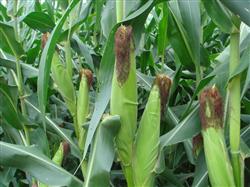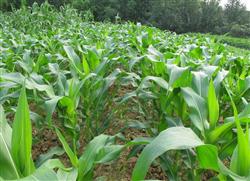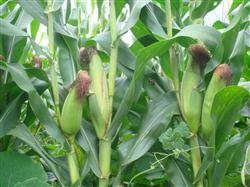What affects the high yield of summer corn?

What affects the high yield of summer corn? Please introduce that there are four problems that can not be ignored in summer maize production, which have become important factors restricting the high yield of summer corn: first, careless seed selection. Some farmers have the mentality of being "greedy for bargains" and buy low-priced "improved seeds" from small traders or informal seed management departments. most of these seeds are self-produced, the seed production procedures are unscientific, and the seed purity is not up to standard, resulting in a serious reduction in production. Therefore, to the formal seed management departments, the selection of improved varieties suitable for planting in this region is the premise to achieve high yield of maize. Second, the density is too high. In order to achieve the purpose of high yield, some farmers blindly increase the planting density, resulting in excessive plant density, resulting in poor growth per plant, high empty culm rate and serious bald tip of female ear, resulting in varying degrees of lodging, resulting in reduced yield. Reasonable close planting is an important link to achieve high yield of summer maize. Different close planting ranges should be selected according to the characteristics of different varieties. Even the density of the same variety should be flexibly controlled according to soil fertility and sowing date, high soil fertility or late sowing should be dense, and middle and lower fertility plots or early sowing should be sparse. Third, fertilization is not scientific. There are widespread phenomena of heavy nitrogen fertilizer, light phosphate fertilizer, ignoring potassium fertilizer and micro-fertilizer in agricultural production. Due to the application of too much nitrogen fertilizer, maize often has poor lodging resistance and serious diseases and insect pests, resulting in varying degrees of yield reduction. Phosphorus and potassium fertilizer and micro-fertilizer should be applied deeply or as early as possible before jointing, and nitrogen fertilizer should be applied in stages, 2cm 3 of the total amount of nitrogen fertilizer applied at jointing stage and 1cm 3 at big trumpet stage. In addition, the application of foliar fertilizer during the growing period can significantly increase the yield. Fourth, watering is not timely. Some farmers do not water corn according to the law of water demand, it is often found that drought before watering, thus missing a good opportunity to promote plant growth and development. Under the premise of sufficient moisture and sowing, jointing and booting water, heading and flowering water and grouting water should be irrigated in time to meet the water needs of plant growth and development. Click to get more corn planting techniques click to get more food crop planting techniques
- Prev

How to breed corn?
How to breed corn? Please introduce the natural cross-pollination habit of maize and the heterozygosity of genetic basis, as well as the breeding procedure of utilizing the heterosis of F1 generation among inbred lines, which forms the particularity of maize breeding. Almost without exception, any successful corn breeder and research institute comes from.
- Next

What factors affect the yield of corn planting in summer
What factors affect the yield of summer corn planting? Please introduce the factors that affect corn yield as follows: 1. Unreasonable planting density is a prominent problem in current summer corn production. For example, some farmers plant more than 5000 seedlings per 667 square meters (1 mu).
Related
- The first cup of black tea in spring, the flavor and history of tea gardens in Kenya, Africa
- The computer can not only choose potatoes, but also grow tea rice. AI will grow winter oolong tea champion.
- It is not only the inflated tea bitten by insects, but also engraved with the four seasons tea in Beipu.
- The Oriental Beauty Tea Festival in Zhuxian County takes the stage at the weekend to experience the plus-size feast of oil tea.
- & quot; Oriental Beauty Tea & Exploration of Emei in Hsinchu, the hometown of quot;
- The new variety of strawberry "Tainong 1" dessert is the first choice with mellow aroma. Crimson gorgeous
- History of Tea in Taiwan: from Wild Inner Mountain to Export Tea Garden
- Two types of Taiwan Oriental Beauty Black Tea won the British three-Star Award for Childhood Tea Xiang Zhang Jiaqi changed from pilot to champion tea maker.
- Banana species and varieties: the planting history of Taiwan Xianren banana and dwarf banana is long, is banana disease resistant?
- Coffee planting Technology: Qianjie Coffee from Seedling to harvesting

